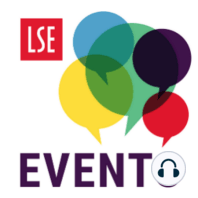80 min listen

Freedom of Expression and Hate Speech: What International Human Rights Law Says
FromSpring 2013 | Public lectures and events | Audio and pdf
Freedom of Expression and Hate Speech: What International Human Rights Law Says
FromSpring 2013 | Public lectures and events | Audio and pdf
ratings:
Length:
81 minutes
Released:
Feb 15, 2013
Format:
Podcast episode
Description
Contributor(s): Navi Pillay | In recent years, the world has witnessed a number of incidents involving hate speech at times with wide-ranging and global repercussions. Many governments have put in place measures which not always are in consonance with international human rights law. This lecture recalls the relevant provisions of the International Covenant on Civil and Political Rights and the International Convention on the Elimination of Racial Discrimination and showcases the jurisprudence of the expert bodies monitoring their implementation. It also illustrates some recent activities undertaken by the Office of the High Commissioner for Human Rights. The appointment of Navanethem Pillay (Navi) as UN High Commissioner for Human Rights was approved by the General Assembly on 28 July 2008 and she assumed her functions on 1st September 2008. On 24 May 2012, the United Nations General Assembly extended her mandate for a further two years. Ms Pillay, a South African national, was the first woman to start a law practice in her home province of Natal in 1967. Over the next few years, she acted as a defense attorney for anti-apartheid activists, exposing torture, and helping establish key rights for prisoners on Robben Island. She also worked as a lecturer at the University of KwaZulu-Natal, and later was appointed Vice-President of the Council of the University of Durban Westville. In 1995, after the end of apartheid, Ms. Pillay was appointed as acting judge on the South African High Court, and in the same year was elected by the United Nations General Assembly to be a judge on the International Criminal Tribunal for Rwanda, where she served a total of eight years, the last four (1999-2003) as President. She played a critical role in the ICTR's groundbreaking jurisprudence on rape as genocide, as well as on issues of freedom of speech and hate propaganda. In 2003, she was elected as a judge on the International Criminal Court in the Hague, where she remained until August 2008. In South Africa, as a member of the Women's National Coalition, she contributed to the inclusion of an equality clause in the country’s Constitution that prohibits discrimination on grounds of race, religion and sexual orientation. She co-founded Equality Now, an international women's rights organization, and has been involved with other organizations working on issues relating to children, detainees, victims of torture and of domestic violence, and a range of economic, social and cultural rights. Ms. Pillay received a BA and a LLB from Natal University South Africa. She also holds a Master of Law and a Doctorate of Juridical Science from Harvard University. She was born in 1941, and has two daughters.
Released:
Feb 15, 2013
Format:
Podcast episode
Titles in the series (100)
Colonial Control in Algeria: the French Security and Intelligence Services between the Two World Wars by Spring 2013 | Public lectures and events | Audio and pdf